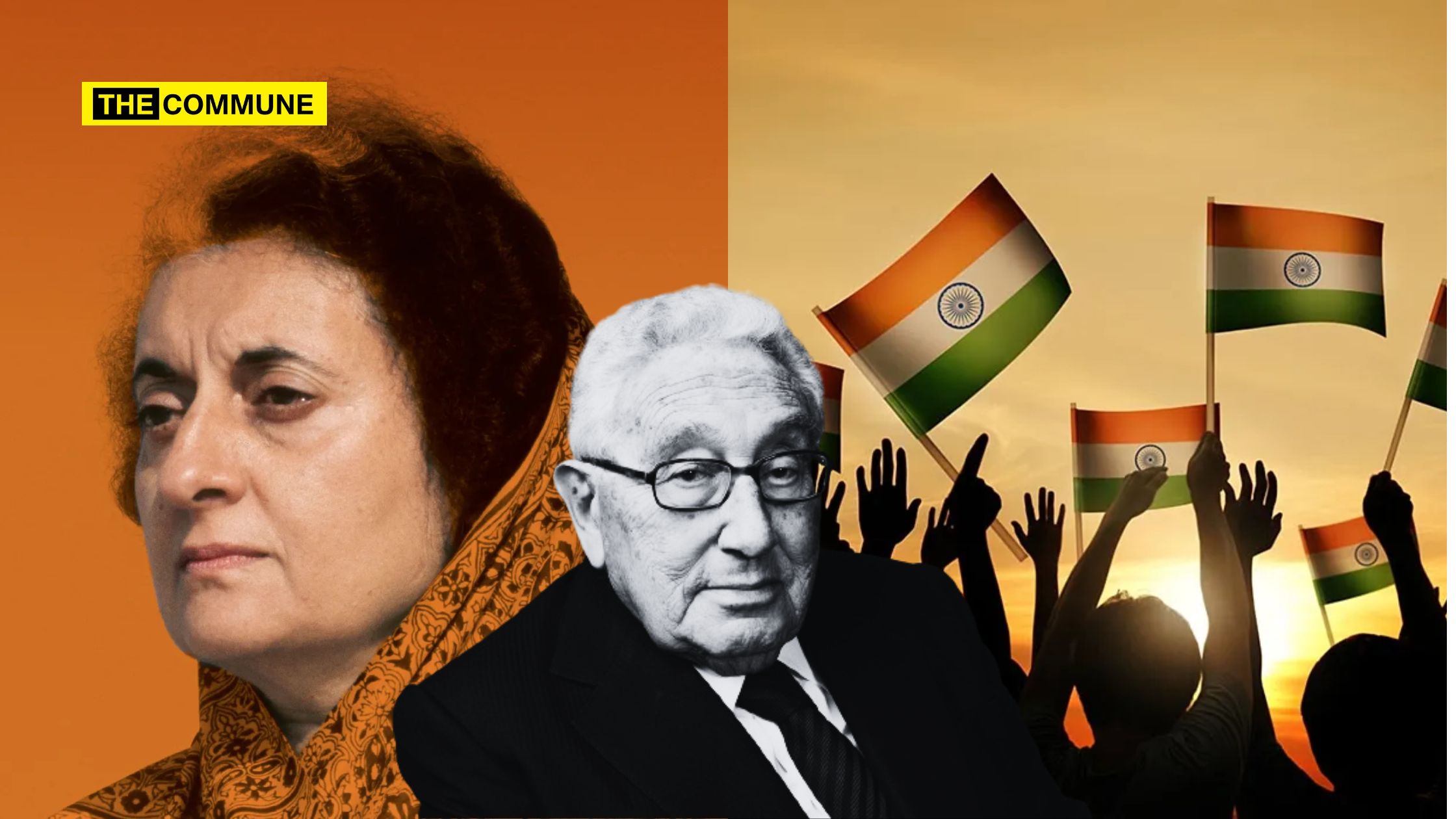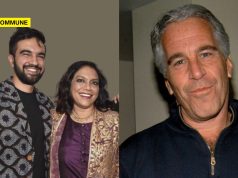
Henry Kissinger, the former US Secretary of State, passed away at the age of 100 in his Connecticut home on 29 November 2023. With that news, netizens shared information on how he was influential in various decisions made by the US at that time, especially during the Bangladesh Liberation in 1971 when it came to the Indian subcontinent.
Kissinger dies. His legacy in Indian SubCon won't be remembered fondly. During 1971 Liberation of Bangladesh war,"Nixon instructed Kissinger to ask the Chinese to move some forces toward the frontier with India…". US State Dept Archives. https://t.co/q0eXwRek8H
— Sidhant Sibal (@sidhant) November 30, 2023
In the crucible of the Pakistan-Bangladesh War of 1971, the United States found itself entangled in a delicate diplomatic dance, carefully navigating the complex geopolitical landscape of South Asia. A declassified summary sheds light on the multifaceted role the U.S. played during this pivotal moment in history.
At the heart of the crisis was the struggle for autonomy in East Pakistan (now Bangladesh) following the 1970 general elections. The U.S. administration, led by President Richard Nixon and his National Security Assistant Henry Kissinger, initially sought to avoid entanglement in South Asian affairs. However, as events unfolded, the challenge of maintaining a neutral stance became increasingly difficult.
The political crisis intensified when President Yahya Khan postponed the scheduled meeting of the National Assembly, sparking demands for autonomy in East Pakistan. The subsequent conflict between India and Pakistan resulted in the creation of Bangladesh. The U.S., using Pakistan as a conduit for secret negotiations with China, attempted to defuse the crisis and prevent hostilities between India and Pakistan.
As tensions escalated, the Nixon administration adopted a strategic tilt towards Pakistan. This tilt involved deploying the aircraft carrier Enterprise to the Bay of Bengal, a move designed to intimidate the Indian government. Concurrently, the U.S. encouraged China to take military action as a deterrent and assured China of protection against the Soviet Union if a conflict arose. These maneuvers were reflective of a delicate balancing act, with the U.S. cautiously managing its relationships with China, the Soviet Union, and the nations involved in the conflict.
The trigger for the crisis in East Pakistan was President Yahya Khan’s announcement of the indefinite postponement of the National Assembly meeting. The U.S. response was initially characterized by a hands-off policy, avoiding involvement in Pakistan’s internal politics. Reports of human rights violations and atrocities in East Pakistan prompted internal dissent within the U.S. government. Diplomatic efforts were considered to pressure Pakistan to restrain its actions, but the U.S. refrained from taking direct action.
The refugee crisis that ensued, with millions pouring into India, further strained the region. The U.S. threatened to cut off economic aid to India if it intervened militarily. While diplomatic channels were explored, including proposals for mutual withdrawal of forces, the U.S. found itself grappling with the broader implications of the conflict.
In a bid to counter Soviet influence, the U.S. urged restraint on India and sought Soviet cooperation in resolving the crisis. Simultaneously, the U.S. engaged in secret negotiations with China, using Pakistan as an intermediary. The delicate balance sought by the U.S. was evident in the desire to protect its channel to China while managing relations with the Soviet Union.
As the crisis reached a boiling point, the U.S. contemplated military options, including the deployment of the carrier Enterprise, to pressure India. The specter of a potential military confrontation between the U.S. and the Soviet Union loomed briefly, emphasizing the high-stakes nature of the diplomatic maneuvering.
Ultimately, the crisis concluded with a cease-fire, but the geopolitical landscape shifted. India emerged as the preeminent power in the region, and Soviet influence increased. The U.S. found itself adjusting to a new reality, having played a nuanced role in the South Asia Crisis of 1971.
His Opinion On Indians & India As A Whole
Several other documentaries and audio files were also circulated over the past few days showing what kind of an opinion Kissinger and Nixon had of India and the then Prime Minister Indira Gandhi.
Nixon called Indira a “b****” while Kissinger addressed Indians as “bast***s”. When Indira Gandhi tried to prevent genocide in Bangladesh, Kissinger says to Nixon, “But, Mr. President, even though she was a bitch, we shouldn’t overlook the fact that we got what we wanted, which was we kept her from going out of here saying that the United States kicked her in the teeth.”
The conversation goes like this:
Nixon: This is just the point when she is a bitch.
Kissinger: Well, the Indians are bastards anyway. They are starting a war there. It’s to them East Pakistan is no longer the issue. Now, I found it very interesting how she carried on to you yesterday about West Pakistan.
Nixon: I think I’ll make the meeting today a rather briefxcool. [unclear] I don’t mean by that cool in terms of not trying to bring up [unclear] I’ll talk to her a little about Vietnam, and
Kissinger: I’d let her talk a little more, maybe today
Nixon: Yeah?
Kissinger: to be a little less forthcoming. But basically, Mr. President
Nixon: So I was trying to give her no excuses. Now I’ve talked to her, told her everything we’re going to do. Now it’s up to her.
Kissinger: While she was a bitch, we got what we wanted too. You very subtle I mean, she will not be able to go home and say that the United States didn’t give her a warm reception and therefore, in despair, she’s got to go to war.
Nixon: Yeah.
Kissinger: So her objective she has a right to be a little sore because you thwarted her objective. She would rather have had you give her a cool reception
Nixon: That’s right.
Kissinger: so that she could say that she was really put upon.
Nixon: Oh, we really
Kissinger: And
Nixon: We really slobbered over the old witch.
Kissinger: How you slobbered over her in things that did not matter, but in the things that did matter
Nixon: Yeah.
Kissinger: you didn’t give her an inch.
The entire declassified transcript of the conversation can be accessed here
Another clipping of a conversation between Kissinger and Nixon on East Pakistan surfaced where Kissinger says, “First of all, no one likes the Indians. And secondly, I think they’re going to look worse and worse as time goes on. Don’t you think a little of the fact that they’ve been terribly cruel and deceitful is beginning to get through?”
He also said, “There are more verified cases of atrocities under their rule than they were under the Pakistan rule. There were never any pictures of.”
No body likes the Indians, Kissinger to Nixon in December 1971 after the creation of Bangladesh.
Audio conversation released by US Govt Archives some years ago. Nixon believed India plans to occupy East Pakistan (wch never happened) https://t.co/qfJSwSo1Cc pic.twitter.com/JzJavvs47m
— Sidhant Sibal (@sidhant) November 30, 2023
The US kept harping on the point that India was keen on occupying East Pakistan and that India was unleashing horror and terror on the then East Pakistanis (later Bangladeshis) when the reality was totally the opposite. It was Pakistan that was carrying out inhuman atrocities on its own population.
Years later, Kissinger openly acknowledged that the U.S. stance during the Bangladesh Liberation War was a glaring example of political misjudgment. It appears that Kissinger’s primary motive was to prevent India from aligning with the Soviet Union and, concurrently, to foster a new relationship with China. In pursuit of these objectives, he supported Pakistan as a counterbalance in the former case and as a facilitator in the latter. However, this strategic choice also inadvertently supported Pakistan’s brutal campaign against Bengali rebels, resulting in widespread atrocities, including mass killings and brutal rapes. The horror was so profound that Bengali women were left lifeless as they endured unspeakable acts of violence.
Despite his numerous endeavours, including unsuccessful attempts to intimidate India and establish enduring friendly ties with China, Kissinger’s legacy is marred by his apparent indifference to the democratic struggles of smaller nations. This indifference is particularly striking given Kissinger’s personal history – a Jewish individual who fled his own country when the Nazis ascended to power and prominence in Germany. The irony lies in Kissinger’s failure to empathise with the struggles of other nations seeking freedom and democracy, considering his own experience as a refugee fleeing persecution.
Subscribe to our channels on Telegram, WhatsApp, and Instagram and get the best stories of the day delivered to you personally




